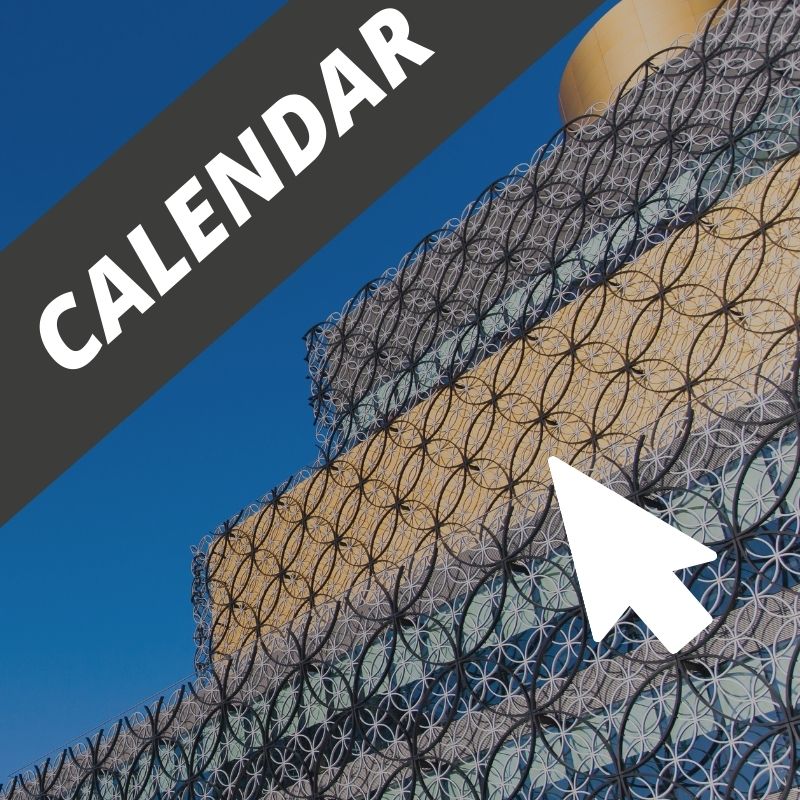Teaching Series Introduction:
This short two-part mini-series is a chance to reflect on some of the big questions we may have at the moment. What is God up to? What will the future look like? Will the church ever be the same? The world is hugely changing, and many are arguing that this moment is as big a transition as other major global shifts through history. By looking at the global trends & transition we are going through, and reminding ourselves of some key biblical truths, we will be able to survive and thrive and continue to build a new kind of world.
Session 2
Title: Where can we find strength to keep going?
By: Tim Chilvers
Date: 8 November 2020
Children’s Resources:
Youth Resources:
Resources are sent out to all parents each week. If you are not receiving these emails or would like to know about how you can get connect with our youth please contact: johng@riverside-church.org.uk
Transcript:
One of the things I love watching on TV are those survival programs. You know, where a group of people are suddenly put onto a desert island or in the middle of the jungle somewhere, or some middle of nowhere and they have to survive. They have to, through their own resources, get their own food and build their own shelters, build their own fires, all the kinds of things you have to do to work out who’s the fittest. Who is going to eventually beat all the others to be the strong survivor. I love those kinds of programs because I’d love to have a go myself, but also I think they, they put their finger on something that is important, kind of for all of us deep down where we want to know quite what we’re capable of.
I don’t know about you but 2020 I think has put a challenge for all of us, and I guess for all of us to one degree or another, have had our mettle tested. Some of us very, very seriously, and some of us have endured really big, challenging times. Others, it’s been more of an inconvenience to life, wherever we’re at on that spectrum, all of us though have had our resources tested in some way. Of course, that carries on as we now begin a new stage of lockdown, and of course the weeks ahead and the months, who knows what that will look like.
But there’s something about testing our strength that gets to the heart of something in our society, because so often we don’t want to admit that we’re weak. It’s the classic interview question, isn’t it, what’s your greatest weakness? And somebody asked it and they somehow in that interview have to turn it into a positive. So people might say, “My greatest weakness is that I work too hard,” or my greatest weakness is, “I stay so long in the office,” or, “My greatest weakness is I’m just ambitious.”
We can’t admit real weakness because we want to present strength. Well, there’s something in what Paul said that we heard earlier that cuts right against that and is both surprising and disturbing, and yet is one of the most beautiful gifts for us all. Whether you’re somebody this morning who feels pretty, strong pretty altogether, or whether at the moment this whole new period of lockdown is something that you really, really are troubled by. There is a gift for all of us and the gift is this, that it is when we really own our weakness we discover true freedom. Because Paul, he’s basically having to defend himself, defending himself compared to some other leaders that are going around.
They’re clearly quite impressive leaders, they’re great speakers, they’re doing incredible miracles, loads of people are following them, they’re the sort of super apostles. Yet compared to that, Paul’s leadership and his ministry is pretty, just normal. Not the greatest preacher, he’s not the greatest miracle worker, and so he has to defend himself, but how he defends himself is surprising and yet hugely encouraging. Verse seven, “Therefore,” he says, “In order to keep me from becoming conceited, I was given a thorn in my flesh.” Now he’s talking about, there’s something in his life that he wishes was different. Some bad circumstance, some challenging thing that he wishes was different.
He calls it a thorn in his flesh. No one knows what that is. It could be some sort of physical illness, some sort of disability. It could be some relationship, a person that’s a continual struggle for him. It could be some issue of temptation or some besetting kind of pattern that he wishes was different. Nobody knows, but I think that’s part of the gift, because we don’t want to get caught up on what the thing is. But there’s something That is not good that he wishes was different. Some limitation, some challenge, some trial, something that he thinks is holding him back from being who he really could be.
We mustn’t kind of wish this away compared to our circumstances and think, well, if only you knew what I was going through, because listen to how Paul describes this thing. He calls it, “A messenger of Satan to torment me.” This is not a small little inconvenience. Something massive in Paul’s life that is bad he wishes was different, and it’s holding him back. A weakness. Yet, Paul has discovered that in the middle of this weakness, there’s an incredible gift. He describes the gift in two different ways which we’ll see in a moment. But before we do that, I just want to pause for a moment and reflect on the question about where God is in giving this thing. Because of course the natural question is, well, has God given this thorn to Paul? We’re not really told, we’re told that it was given to him, but we’re not told who by, but what is clear that it isn’t a good thing, and it is a messenger of Satan.
So therefore this isn’t a God thing, it’s bad. In the same way, for many of us this year, the circumstances of this year in coronavirus, it’s not good at all and where God is over it all, we know that it’s not good. But even in this challenge, God is doing good, as we’ll see, because it’s Paul recognizing this thing has shown his weakness and therefore this weakness has done two things, and the first thing is this. It’s made him look upwards, because what does Paul do with this problem, this challenge? Well, verse eight, “Three times I pleaded with the Lord to take it away from me.” He goes to God with it. It’s because he’s got this weakness he has to depend on God, because he can’t depend on himself anymore.
That’s the thing about weakness. If we’re weak, we’re not strong enough. We need God to act, and we easily forget that our society is all about being the strong one. No one wants to be known as a weak leader or the weak link, or the weak member of the team, or a weak parent, and yet it’s when we’re weak and we know we’re weak, we need help. Paul needs help, and so he has to turn to God and he pleads with him. There’s something beautifully raw about that. The authenticity that he’s come to the end of his own resources, and so therefore has to depend on God’s resources. Friends, whoever you are, part of a gift in challenging times is that we have to go to God because we haven’t got enough anymore.
One of the things that really struck me, do you remember when I think it was Donald Trump was diagnosed with coronavirus and everyone was talking about, “Well, he’s a strong man. He’ll get through this.” There’s that kind of narrative that so many of us talk about, “You’ve got to have strength, you’ll get through this illness.” And of course we understand the positive attitude is really important. Absolutely. But the Achilles heel to that is, of course, is what happens if you’re not strong enough, and this particular illness has got nothing to do with your attitude? So not only then have you got the virus to battle with, but you’ve got the guilt that somehow it’s your fault.
Paul is discovering that it is when it is the end of his resources he needs God, and therefore he looks upwards and God’s response to his prayer is amazing. Verse nine. “But God said to me, ‘My grace is sufficient for you. For my power is made perfect in weakness.'” It’s almost as if God is saying it’s when you’ve come to the end of yourself, then you’ll see what I can really do. I wonder if one of the gifts for the church at this particular moment is that perhaps for a while we’ve been making our plans, and we’ve not really discovered what God can do.
Tozer, AW Tozer, who was a Christian leader several decades ago, said some amazing words, listen to this. He said this about what God wants to do. “God is looking for people through whom he can do the impossible, what a pity that we plan only the things we can do by ourselves.” I wonder if for the church, one of the aspects of this coronavirus is that it’s humbled us, because we don’t know what to do. All our plans have gone to pot, and it’s maybe in that moment that we get to see what God might do, because we’ve come to the end of our resources, our plans, our structures. Then we have to fall on our faces and say, “God, we plead with you, do something.” It’s only because we’re in the weak times that we need him, and of course that applies to us as the church, it applies to us as individuals.
It might be the right now there’s somebody watching and you’re not sure whether you’d call yourself a follower of Jesus, but you know as you look back through your life, there’s been those moments, and maybe even now where you’ve come to the end of your resources and that you’ve had to as it were, throw yourself on God, and it’s because you’ve got nothing left that you need him for what’s ahead. So part of the gift of owning our weakness is looking to see what God can do. “My grace is sufficient for you,” he says to Paul. It’s when we realize and discover God’s grace is enough to carry us, through not our own strength, not our own plans, not our own, having it altogether. But, “My grace,” says God, is enough. I pray even now that there might be one or two watching that you just sensed God putting his hand on you and saying, “Friend, child, my grace is enough for you. My power is made perfect in your weakness. Look, see what I’m doing.”
So our weakness makes us look upwards, but there’s a second thing for Paul. Not only his weakness make him look upwards, recognizing his weakness makes them also look outwards. Listen to what he says, verse eight. “Therefore I will boast all the more gladly about my weaknesses so that Christ’s power may rest on me. That’s why for Christ’s sake, I delight in weaknesses, in insults, in hardships, persecutions and difficulties, for when I’m weak, then I’m strong.” Do you notice that word? He boasts in his weakness. He delights in them. There’s something public about it. Something public about, before other people, not needing any more to defend himself. Just with transparency saying, “Yep. I haven’t got it all together.”
There’s something about weakness that builds community, there’s something about owning who we really are rather than pretending that we’ve got it all together that builds beautiful relationships. CS Lewis said these words. “Friendship is born at that moment when one person says to another, ‘what you too?’ I thought I was the only one.” There’s something incredibly disarming when we realize we’re not the only one, and can I say friends, if you’re struggling right now, you are not alone. Part of the beauty of this moment is none of us have it all worked out how this is going to go, and therefore we need each other.
Even more than that, in our society, where so often it is about strength, where do people go with their weakness? Maybe we who are followers of Christ can be a place where people can come with weakness, and therefore, when we are people who publicly, as it were recognize and own our weakness, other people then feel safe to then say, “Yeah, me too. Please show me the hope that you found.” There’s something intentionally and intensely inviting about being a place where people don’t have to pretend, don’t have to be strong.
But there’s one final thing that I think weakness helps us with regarding other people, because we look outwards and on this Remembrance Sunday, we remember those who have fought on our behalf and we’re so thankful. It’s as if we look back to those stories, those who have fought and won. Then those who’ve been through the battle. Claire, my wife’s cousin, Sam, is a fighter pilot, and a few years ago, we had a very distressing moment where Claire was one evening on the BBC news website, and then suddenly the ticker tape came across the top, “RAF jet crashed in the North sea.” I remember she phoned her auntie, engaged. Phoned her granny, engaged. Friend, lots of members of their family, lots of engaged tones, and of course naturally began to wonder and sure enough, it was Claire’s cousins jet that had gone down in the North sea.
What we then discovered was that Sam had ejected from his Tornado, and what’s amazing, I didn’t know, is that these objector seats are rocket propelled. They have an actual rocket under them, and of course it makes total sense, doesn’t it? If those jets are going however fast they go, you’ve got to be able to clear it quickly. So what happens is they press a button and then they’re ejected out. The manufacturers of the rocket propelled seats have a very, very special club, and you join this club only by being a survivor of ejecting from one of their seats on the planes. As a result, you get this tie, and so Claire’s cousin wears this tie rightly with real pride, because others then can see he has been in the battle and has gone through the other side. There’s something about that sense of, “Wow, he’s endured that, kudos to you, mate.”
There’s something about clinging on to the one who can take you through that enables you to therefore help others, to inspire others. Therefore, in our culture where it’s so often about a culture of being a victim, maybe owning our weakness changes us from being a victim to a victor. That we’re able to then help others because we’re clinging onto one who carries us through. Rather than just blaming all the time, actually saying, “I’m clinging onto the one who will carry me through.” So like Paul, he delights in weakness. He delights in insults, in hardships, in persecutions, in difficulties, because when he’s weak, he’s strong because he’s clinging onto the only one that will carry him through. So friends, whoever you are, whatever you are going through right now, my prayer is for all of us is that we’ll discover in our weakness, he is strong.
Let me pray. Father. I pray right now for everyone listening to this Holy Spirit, would you, as it were, put your hand on them to remind them that you are strong, you’ve got them. That you Lord God say, “My grace is sufficient for you. My child I’m holding you. I will carry you through.” Thank you, Lord that when we’re weak, you are strong. Amen.
Study Questions
- Do you think of yourself as being a ’strong’ person? What do you mean by that?
- Read 2 Corinthians 12:7-10. Paul describes a ’thorn in the flesh’. What strikes you about the way he describes it? Why is it irrelevant what the thorn actually is?
- What do you think it means when God says that ‘My grace is sufficient for you’ (v9)? Why is this good news?
- Paul talks of ‘boasting’ about his weakness (v9). What do you think it means to be do that?
- Craig Groeschel said ‘People may admire you for your strengths – they connect with you through your weaknesses.’ How is boasting about your weakness an act of hospitality towards others?
- What do you think it looks like for ‘Christ’s power to rest on you’ (v9) with regard to our weaknesses?
- Take some time to pray for the ability to encourage other people, and to be ‘real’ with each other, in such a way that highlights how amazing Christ is.






